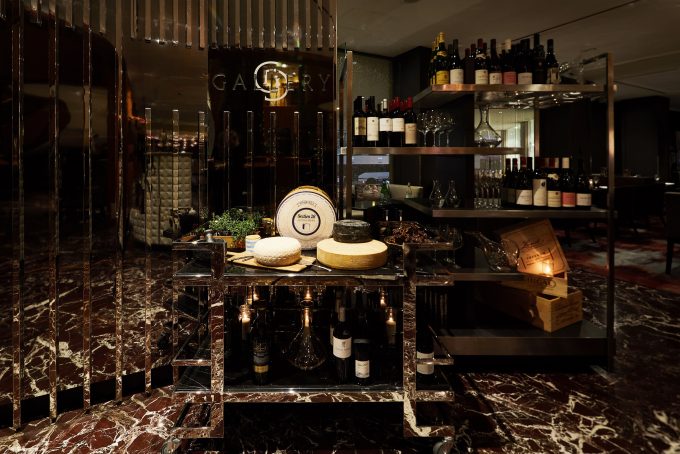
Want direct bookings? Train your team to ask for them
If you’re like most hotel managers, chances are you are highly focused on securing more direct bookings and thus reducing the costs of customer acquisition.
If so, here are some train-the-trainer style tips for providing your reservations and/or front desk colleagues with the skills they need to covert today’s over-informed, channel surfing callers. You can use these at your next departmental meeting or during one-on-one coaching sessions.
Understanding what callers do before calling. Walk them through the process of researching hotel options prior to calling. Pick a city or travel destination that is similar to yours but located far away.
Have them start out with a Google search for “Hotel Deals City Name,” then have them search on a few of the OTA links and listing sites that come up.
Show them how confusing it sometimes is where listings appear to link to the hotel but are actually to a third party.
[pro_ad_display_adzone id=”15046″ align=”left”]Review how many hotels show up at the OTA, and on each hotel how many rate options and room categories there are for guests to sort through. This will help them understand that their job is not to help callers find what rooms / rates are available but rather to help them decide that this is the best hotel to book and now is the best timeConduct familiarisation tours of your accom and neighbourhood. From what I see as a hotel industry reservations trainer, all too often those that are selling the rooms and hotel outlets are not familiar with the details that today’s callers desire. With all the basic information listed online, today’s callers have specific questions regarding what they have seen images of and read about in reviews. If you offer multiple room types, make sure agents are prepared to describe the differences and value-added.
For full service hotels and especially resorts, make sure agents know about details such as restaurant cuisine, signature spa treatments, specifics of fitness centre equipment and other recreation.
Also familiarise them with the neighbourhood and area attractions so they can sell the experience. If your agents are off-site or at a call centre conduct “virtual tours” by visiting websites together.
Train agents to use an investigative sales process to uncover “the story” behind the call. Too many reservations trainers only focus on obsessing over using “open” vs. “closed” questions.
There are some really good closed questions by the way, such as “As I’m checking availability, are there any questions I can answer for you about our location or amenities?” and “Have you visited our website yet” and “Do you have a room type in mind or are you looking for options?”
Instead of having them worry so much about if a question is open or closed, focus on helping find out who is calling and why they are travelling.
In our KTN programs we call this “Unmasking the story behind the call.”
Train agents to “narrate the pictures”. Earlier in my career in the era when guests had only a hotel brochure or a directory listing with thumbnail pictures and a few bullets, we trained agents to “paint the picture.” Today’s callers have already seen plenty of pictures prior to calling.
The problem is that many do not believe what they see! In the workshops I teach, agents often tell me that real-world callers frequently ask some version of: “Does it really look like it looks in the picture?”
In our KTN workshops we train agents to “narrate” the pictures with descriptions that start with phrases such as “Imagine yourself enjoying…” Train the team to use words that allure and entice callers versus just listing features and stating benefits.
Prepare agents for rate objections. Due to the advances in revenue and distribution management, today’s agents end up having to explain and defend the most complex set of rate policies in the history of lodging.
Help them find better ways to overcome rate objections. One example: Callers frequently ask some version of “Why are the rates so much higher this time of year?” If not trained, most will say “Oh, it’s a busy time so the rates go up.” A better way is to say “Oh, last time you were here it was low season and we were able to offer some specials. However, now during busy season our normal rates apply. It’s still a great value because…”
Do as we also do in KTN trainings and prepare them to explain sticky situations such as why rates change during a multi-night stay, why a group rate is higher than the special they see online, and why their friend who booked closer in to the arrival date is paying a lower rate than they booked far in advance.
Empower agents to verify and match rates seen online. It always amazes me how often I hear my workshop participants express that they are not able to match rates that callers see online at OTA’s.
Most of the time the manager tells a different story – that they are supposed to verify and match rates, but this message has gotten lost in translation.
From what I hear when monitoring real-world calls, there’s plenty of callers who would just as soon book directly during the call if the rate matches, and of course the hotel saves commissions and fees.
Incentivise your reservations team. Too many managers still take a stand against paying reservations agents any incentives. Their biggest argument seems to be “That’s their job; that’s what we pay them to do is to take reservations.” Yet these same managers fully support providing commissions, incentives and bonuses for the hotel sales and catering sales team!
Experience shows that a properly structured incentive plan, which pays agents for going above and beyond their normal routines, leads to increases in both conversion and revenue per booking.
Originally published in www.HotelNewsNow.com
Doug Kennedy is president of the Kennedy Training Network. Doug’s articles are originally published in www.HotelNewsNow.com” and AccomNews shares them with permission.
Doug is a leading provider of hotel sales, guest service, reservations, and front desk training programs and telephone mystery shopping services for the lodging and hospitality industry. He continues to be a fixture on the industry’s conference circuit for hotel companies, brands and associations. Since 1996, Doug’s monthly training articles have been published worldwide, making him one of the most widely read hospitality industry authorities.






